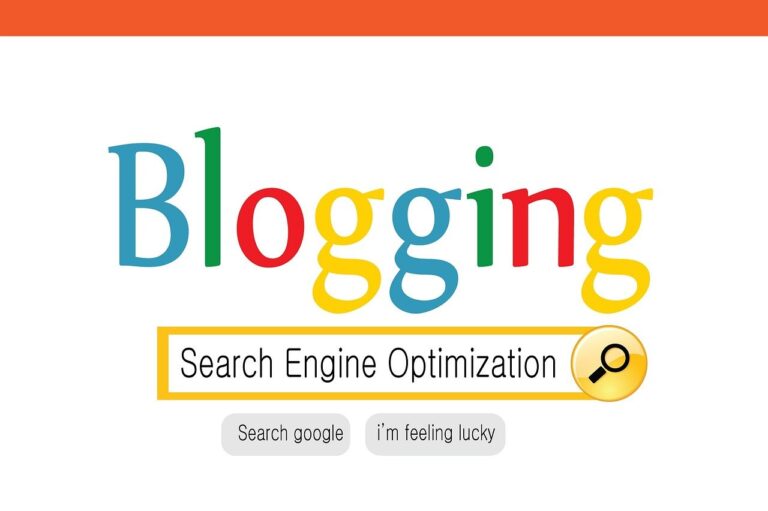Understanding Holism In Healthcare
Holism in healthcare emphasizes treating the whole person rather than just specific symptoms or conditions. This approach considers the interconnectedness of physical, mental, emotional, and spiritual aspects of health.
The Origins And Development Of Holistic Philosophy
Holistic philosophy in healthcare has roots in ancient healing traditions. Hippocrates, the father of modern medicine, emphasized the importance of treating the whole person.
In the 20th century, holistic concepts gained renewed attention as a response to increasingly specialized medical practices. The term “holism” was coined by Jan Smuts in 1926. He used it to refer to the idea that systems should be viewed as wholes, not just as collections of parts.
Holistic healthcare developed further in the 1970s as part of the alternative medicine movement. It sought to address perceived shortcomings in conventional medicine by focusing on prevention and wellness.
Core Principles Of Holistic Healthcare
Holistic healthcare recognizes the importance of treating the entire person, not just physical symptoms. Key principles include:
- Integrating body, mind, and spirit
- Emphasizing prevention and wellness
- Recognizing the patient’s role in healing
- Considering environmental and lifestyle factors
Practitioners aim to understand the root causes of illness, not just manage symptoms. They often use a combination of conventional and alternative therapies to promote overall well-being.
Holistic care also acknowledges the importance of spirituality and religion in health. It recognizes that these aspects can significantly impact a person’s well-being and recovery.
Differences Between Holistic And Conventional Medicine
Holistic and conventional medicine differ in several key ways:
| Aspect | Holistic Medicine | Conventional Medicine |
|---|---|---|
| Focus | Whole person | Specific symptoms or diseases |
| Approach | Prevention and wellness | Treatment of illness |
| Treatment | Combination of therapies | Primarily drugs and surgery |
| Patient Role | Active participant | More passive recipient |
Holistic practitioners often spend more time with patients, exploring various aspects of their lives. They may recommend lifestyle changes, dietary adjustments, and stress reduction techniques alongside conventional treatments.
Conventional medicine typically focuses on treating specific conditions with standardized protocols. It relies heavily on scientific evidence and technological interventions.
Many healthcare providers now recognize the value of integrating holistic principles into conventional care for better patient outcomes.
The Interconnectedness Of Mind, Body, And Spirit
Your mental state, physical health, and spiritual well-being are deeply intertwined. This connection influences your overall health and quality of life in profound ways.
How Mental Health Influences Physical Health
Your mental health has a significant impact on your physical well-being. Stress, anxiety, and depression can manifest as physical symptoms. For example, chronic stress may lead to headaches, digestive issues, and weakened immune function.
Conversely, positive mental states can boost your physical health. Practicing mindfulness and maintaining a positive outlook can lower blood pressure and improve cardiovascular health. Your thoughts and emotions can also affect your eating habits, sleep patterns, and exercise routines.
By addressing mental health concerns, you may see improvements in physical ailments. This highlights the importance of considering both aspects when seeking treatment.
The Role Of Spiritual Well-Being In Overall Health
Spiritual well-being, regardless of religious affiliation, plays a crucial role in your overall health. It encompasses your sense of purpose, connection to others, and understanding of life’s meaning.
Spiritual experiences can impact both your mind and body, influencing how you cope with illness and stress. Practices like meditation, prayer, or spending time in nature can reduce anxiety and promote feelings of peace.
Spiritual well-being can also foster resilience and hope during challenging times. This mental fortitude can positively affect your physical health by reducing stress hormones and promoting healing.
Case Studies Demonstrating Holistic Interconnectedness
Real-life examples illustrate the power of addressing health holistically:
-
Cancer patients who incorporate mindfulness practices often report reduced pain and improved quality of life.
-
Individuals with chronic pain have found relief through a combination of physical therapy, cognitive behavioral therapy, and spiritual practices.
-
Heart disease patients who adopt stress-reduction techniques alongside traditional treatments often see improved outcomes.
These cases demonstrate that treating the whole person – mind, body, and spirit – can lead to more comprehensive healing and better overall health outcomes.
Benefits Of Treating The Whole Person
Treating the whole person offers numerous advantages that can significantly impact health outcomes and patient experiences. This approach considers all aspects of an individual’s well-being, leading to more comprehensive and effective care.
Enhanced Healing Outcomes
Holistic health care aims to address the root cause of illness rather than just alleviating symptoms. By examining your physical, mental, and emotional state, practitioners can identify underlying issues that may contribute to your health problems.
This comprehensive approach allows for more accurate diagnoses and tailored treatment plans. You may experience faster recovery times and reduced chances of recurrence as all contributing factors are addressed.
Holistic treatments often combine conventional medicine with complementary therapies, providing a broader range of options for your healing journey. This integration can lead to synergistic effects, enhancing the overall effectiveness of your treatment.
Long-Term Health And Wellness
When you receive care that treats the whole person, you’re more likely to develop sustainable health habits. Practitioners focus on education and prevention, empowering you to make informed decisions about your lifestyle.
You’ll gain a deeper understanding of how various aspects of your life interconnect and impact your health. This knowledge enables you to maintain balance and make proactive choices to support your well-being.
Holistic approaches consider your unique circumstances, including family history, environmental factors, and personal goals. This personalized care helps you build a strong foundation for long-term health and resilience against future health challenges.
Patient Satisfaction And Empowerment
Whole-person treatment fosters a collaborative relationship between you and your healthcare providers. You’re seen as an active participant in your healing process, not just a passive recipient of care.
This approach acknowledges your individual experiences and perspectives, leading to greater trust and open communication with your healthcare team. You’re more likely to feel heard and understood, which can significantly improve your overall satisfaction with the care you receive.
By addressing all aspects of your well-being, whole-person treatment can enhance your quality of life beyond just physical health. You may experience improvements in your relationships, work performance, and overall sense of fulfillment.
Practical Applications Of Holistic Approaches

Holistic approaches offer practical ways to address health and well-being comprehensively. These methods consider the interconnectedness of mind, body, and spirit, aiming to treat individuals as whole beings rather than isolated symptoms.
Holistic Practices In Mental Health
Holistic mental health practices integrate various therapeutic techniques to address psychological well-being. Psychologists are encouraged to consider a holistic approach that encompasses physical, emotional, and social aspects of a client’s life.
You might encounter therapies like mindfulness meditation, which helps reduce stress and improve emotional regulation. Art therapy allows you to express feelings non-verbally, promoting self-discovery and healing.
Cognitive-behavioral therapy (CBT) combined with physical exercise can enhance mood and reduce anxiety. This dual approach targets both thought patterns and physiological responses to stress.
Holistic practitioners may also incorporate nutrition counseling, recognizing the impact of diet on mental health. You might receive guidance on foods that support brain function and emotional balance.
Integrative Medicine And Holistic Therapies
Integrative medicine blends conventional and alternative treatments to provide comprehensive care. You may find practices like acupuncture used alongside traditional pain management techniques.
Massage therapy is often employed to reduce muscle tension and promote relaxation. This can complement other treatments for chronic pain or stress-related conditions.
Holistic approaches in healthcare view you as a person, not just a set of symptoms. Your treatment plan might include herbal remedies, chiropractic care, or energy healing practices like Reiki.
Physicians practicing integrative medicine may recommend mind-body techniques such as guided imagery or biofeedback to help you manage symptoms and improve overall well-being.
Nutrition And Lifestyle Changes In Holistic Care
Holistic care emphasizes the role of nutrition and lifestyle in maintaining health. You’ll likely receive personalized dietary advice based on your unique health profile and goals.
A holistic nutritionist might suggest an anti-inflammatory diet to manage chronic conditions. This could include increasing your intake of omega-3 fatty acids and antioxidant-rich foods.
Lifestyle modifications are key components of holistic care. You may be encouraged to adopt regular sleep patterns, engage in daily physical activity, and practice stress-reduction techniques.
Holistic practitioners often recommend detoxification protocols to support your body’s natural cleansing processes. These might involve specific diets, herbal supplements, or hydrotherapy.
Environmental factors are also considered. You might receive advice on reducing exposure to toxins in your home and workplace to support overall health and prevent illness.
Holistic Approaches In Various Health Disciplines

Holistic health practices have gained traction across multiple medical fields. These approaches aim to treat patients as whole beings, addressing physical, mental, and emotional aspects of health simultaneously.
Holistic Nursing Practices
Holistic nursing recognizes the interconnectedness of mind, body, and spirit in patient care. You’ll find that nurses practicing this approach consider your entire wellbeing, not just your physical symptoms.
They may incorporate complementary therapies like aromatherapy or guided imagery alongside traditional medical treatments. These nurses often focus on patient education, empowering you to take an active role in your healing process.
Holistic nurses also emphasize the importance of the nurse-patient relationship. They strive to create a healing environment that promotes comfort and reduces stress.
Holistic Approaches In Physical Therapy
In physical therapy, a holistic approach means looking beyond the specific injury or condition. Your therapist will consider how pain or limited mobility affects your overall quality of life.
They may integrate techniques from various disciplines, such as yoga or tai chi, to improve your balance and flexibility. Nutritional counseling might be included to support tissue healing and reduce inflammation.
Holistic physical therapists often address the emotional impact of physical limitations. They may teach stress reduction techniques or recommend counseling to help you cope with chronic pain or disability.
Holistic Dentistry And Oral Health
Holistic dentistry, also known as biological dentistry, views your oral health as an integral part of your overall wellbeing. Practitioners in this field consider how dental procedures and materials might affect your entire body.
You’ll find that holistic dentists often use biocompatible materials and may offer alternative treatments to traditional root canals or mercury fillings. They typically focus on prevention and may recommend dietary changes to improve your oral health.
Some holistic dentists incorporate practices like acupuncture or homeopathy to manage pain and promote healing. They also consider the potential impact of oral infections on systemic health, emphasizing the mouth-body connection.
Challenges And Criticisms Of Holistic Healthcare

Holistic healthcare faces several obstacles in gaining widespread acceptance and implementation. These include misunderstandings about its core principles, practical challenges in conventional medical settings, and skepticism from some in the scientific community.
Common Misconceptions About Holism
Many people mistakenly believe holistic care rejects all conventional medical treatments. In reality, it aims to integrate traditional and complementary approaches to provide comprehensive care.
Another misconception is that holistic practices lack scientific backing. While more research is needed in some areas, many holistic techniques have substantial evidence supporting their efficacy.
Some view holism as solely focused on alternative therapies. However, true holistic care considers all aspects of a person’s health, including conventional medical treatments when appropriate.
Barriers To Holistic Care In Conventional Settings
Time constraints often hinder holistic care in traditional medical environments. Addressing a patient’s physical, mental, and spiritual needs requires more time than standard appointments typically allow.
Limited training in holistic approaches among healthcare professionals can create resistance to implementation. Many medical schools still emphasize disease-focused rather than person-centered care.
Insurance coverage for holistic treatments remains inconsistent, making them financially inaccessible for many patients. This barrier perpetuates the notion that holistic care is a luxury rather than an essential aspect of healthcare.
Addressing Criticisms And Skepticism
Critics argue that holistic care lacks standardization and quality control. To counter this, proponents advocate for increased research and evidence-based guidelines for holistic practices.
Skeptics often question the effectiveness of spiritual and emotional components in healthcare. Educating both professionals and the public about the proven benefits of addressing these aspects can help overcome this skepticism.
To address concerns about potential harm, holistic practitioners emphasize the importance of integrating their approaches with conventional medicine when necessary. This collaboration ensures patient safety while providing comprehensive care.
Final Thoughts

Holistic care recognizes that you are more than just your symptoms. It considers your physical, mental, emotional, and spiritual well-being as interconnected parts of a whole.
By treating the whole person, practitioners can address root causes rather than just surface-level issues. This approach often leads to more comprehensive and lasting improvements in your overall health.
Adopting a holistic mindset in your own life can be empowering. It encourages you to take an active role in your well-being, considering how different aspects of your life influence each other.
Remember that holistic care doesn’t reject conventional medicine. Instead, it seeks to integrate various approaches to provide the most effective treatment for you as an individual.
As you explore holistic health options, be open to new perspectives. What works for one person may not work for another, so be patient in finding the right balance for your unique needs.
Ultimately, the philosophy of holism reminds you that you’re a complex, multifaceted being. By honoring this complexity in your healthcare choices, you can work towards a more balanced and fulfilling life.
Frequently Asked Questions

Holism in healthcare and philosophy emphasizes treating the whole person rather than isolated symptoms or conditions. This approach considers physical, mental, emotional, and social factors in health and well-being.
How does the whole person approach to medicine differ from traditional medical practices?
The whole person approach takes a broader view of health than traditional medicine. It considers your lifestyle, relationships, and environment alongside physical symptoms. This holistic perspective aims to address root causes rather than just treating symptoms.
Traditional medicine often focuses on specific body systems or diseases in isolation. The whole person approach sees you as an integrated being, recognizing connections between different aspects of your health.
What are the implications of holism for patient care in healthcare settings?
Holistic care involves considering your spiritual and cultural needs alongside medical treatment. Healthcare providers may ask about your beliefs, values, and life circumstances to provide more personalized care.
This approach can lead to more comprehensive treatment plans. It may include complementary therapies, lifestyle changes, and addressing psychological factors alongside conventional medical interventions.
How does treating the whole person enhance personal development?
Treating the whole person encourages self-awareness and personal growth. It prompts you to examine how different aspects of your life interact and influence your well-being.
This holistic view can help you identify areas for improvement beyond just physical health. It may motivate you to address emotional issues, improve relationships, or pursue meaningful goals.
How can educators implement a whole person approach in academic environments?
Educators can incorporate social-emotional learning alongside academic subjects. This helps students develop skills like self-awareness, empathy, and stress management.
Creating a supportive classroom environment that considers students’ diverse needs and backgrounds is crucial. Educators can also encourage students to explore connections between different subjects and their personal lives.
What are the core principles of holism in philosophical contexts?
Holism in philosophy emphasizes the interconnectedness of all things. It suggests that systems should be viewed as wholes rather than collections of parts.
This principle applies to understanding human beings, society, and nature. It challenges reductionist approaches that try to explain complex phenomena by breaking them down into simpler components.
In what ways can the whole person approach to care impact patient outcomes?
The whole person approach can lead to more effective treatments by addressing underlying causes of health issues. It may improve patient satisfaction by considering your personal preferences and values in care decisions.
This approach can also enhance preventive care. It does this by identifying risk factors in your lifestyle or environment. Additionally, it may lead to better management of chronic conditions by addressing multiple aspects of your health simultaneously.






